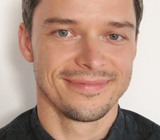 I enjoyed reading Victoria Twigg’s piece on the training needs of Generation Y recently. It is obvious we need to think much more about what attracts people into medicine and why people want to stay given that we’re in the middle of a recruitment crisis. Having a conversation about the future and what sustains us is a necessary part of planning for the future.
I enjoyed reading Victoria Twigg’s piece on the training needs of Generation Y recently. It is obvious we need to think much more about what attracts people into medicine and why people want to stay given that we’re in the middle of a recruitment crisis. Having a conversation about the future and what sustains us is a necessary part of planning for the future.
I first wrote about “playing the long game” in September 2015, and it is a theme that is still on my mind. It wouldn’t be that long ago that I would have been considered “mid-career” in the world of psychiatry, at my ripe old age of 40. Mental Health Officer status was bestowed on those working in mental health pre-1995 and allowed them to retire at the age of 55. It was provided “to compensate members caring for patients suffering from mental health disorders. It was a continuation of arrangements which existed prior to the formation of the NHS in 1948, when treatment for mental health patients was different to today.” In other words, as senior colleagues have explained to me, it was in recognition for the demanding nature of the work.
Now, don’t get me wrong. I understand those days are gone, and I’m not sure I want to see a return to them either. From my perspective, it feels odd to think about retiring so young. Although I’ve been a consultant for eight years, I feel like I’m still just getting started. I don’t think I’ve reached my potential, I’ve got a lot more to learn, and much more to give.
It is also unsettling to watch 55 year old colleagues choosing to leave. Not all do, but some want to move on to different things, want a break, or just want to retire. The reasons for this are various of course, and people are free to choose, but I’ve heard from a number of quarters that the work has changed, expectations are different, pressures around productivity and performance management have grown, and autonomy has been eroded. In other words, the work is getting harder, perhaps less satisfying, and so people are voting with their feet.
There is an irony that the pension benefits that were dropped as work is now “different,” has facilitated the loss of some of our most experienced colleagues, because it is the work of today that is demanding, rather than that of pre-1995. I had a surreal moment the other day when I was talking about the disappearance of these “village elders” as I’ve been calling them, and grieving the loss of their wise counsel for difficult dilemmas. They are the people that have seen it all before. “Who will we go to now?” I asked: “That’ll be you Billy,” was the response. “Err… right.”
So if the rest of us are going to keep delivering the health service in these more demanding times we need to get the balance right. My burning ambition to get on a few years ago is now tempered with a deeper recognition of experience and its value, and a need to maintain fitness and resilience for the long term.
We can no longer use the strategies of those that have gone before us. Throwing hours of energy and incurring personal cost. Ultimately, that personal cost becomes a cost to the health service too if people bow out early or when they can.
Generation Y’s characteristics shouldn’t be seen as demanding. They perhaps have a better understanding of what lies ahead than previous generations anticipated. I would argue that that Gen Y’s approach is a sensible strategy for resilience, and if we’re all now going to be here until we are 68 or more, we need to give each other the room to exercise that. Maybe us Gen X’s should be taking a leaf out of Gen Y’s book.
Billy Boland is a consultant psychiatrist and associate medical director for quality and safety at Hertfordshire Partnership University NHS Foundation Trust. You can follow him on Twitter @originalbboland.
Competing interests: None declared.
